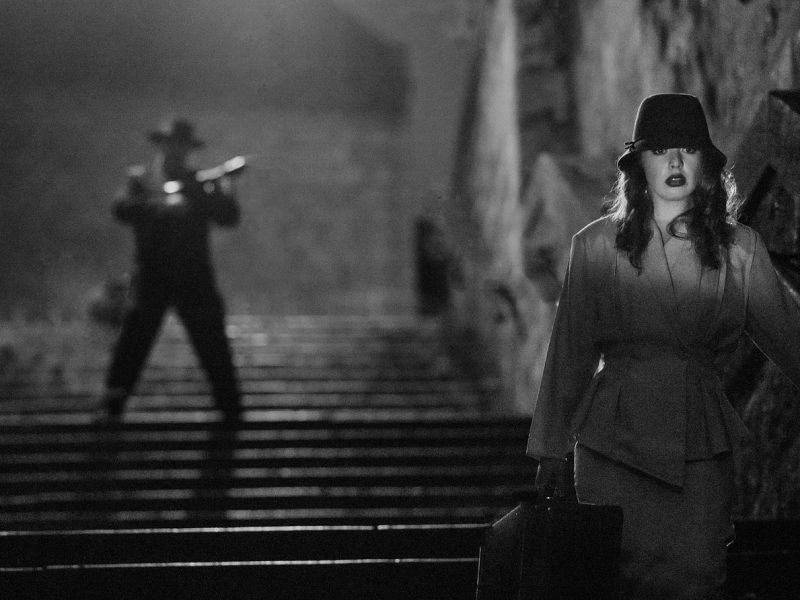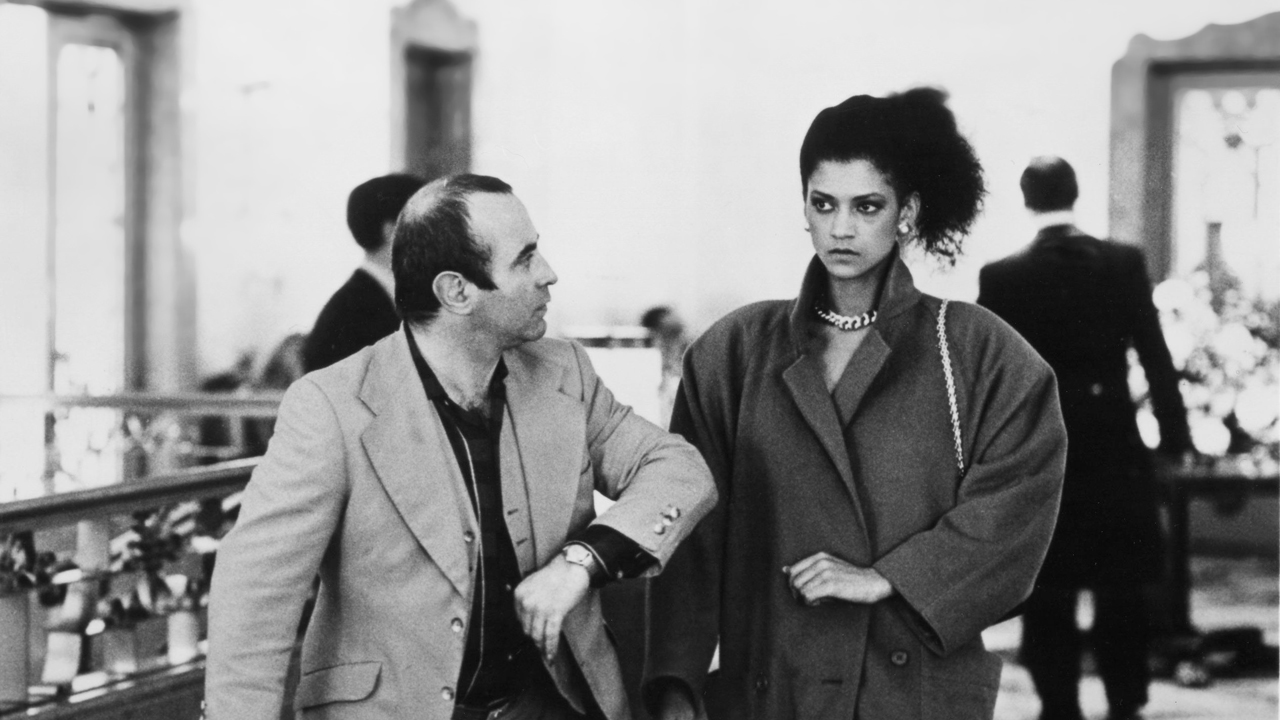After an unscheduled winter break while the floor of the library was being repaired, the monthly film shows there resumed in triumphant fashion on 7 March with an exhilarating evening of early silent movies. A packed and enthusiastic audience enjoyed the excitements of The Great Train Robbery, which was made in 1903, and a full-length action drama entitled The Signal Tower (1924).

The programme was selected and introduced by the celebrated film historian and restorer, Kevin Brownlow, who used to run his company, Photoplay Productions, from premises in Princess Road. Kevin won an Honorary Academy Award in 2010 for his role in film and cinema history preservation, and his passion for early cinema proved both captivating and infectious. He provided a wealth of fascinating information about both films.
The Great Train Robbery is one of the earliest film dramas ever made and was accused on its release of provoking a wave of copycat crimes. Although shot in black and white, the remarkably high-quality print used for the screening featured wonderful hand-tinted sequences which literally exploded into colour.
This was no more than a curtain-raiser, however, for the main film of the evening, which demonstrated the huge advance in story-telling techniques during the intervening twenty years. The Signal Tower featured spectacular train footage, intercutting narratives and an array of marvellous performances from the leading players.
Although made in Hollywood, it received its world premiere in London, and Kevin gave a compelling account of both this and the extraordinary lengths to which he had to go in order to obtain (and preserve) the print of the film that he was showing. This was intriguingly tinted – black and yellow for daylit sequences, black and blue for night ones – and remarkably modern in the chilling, sexual threat of its dénouement, with Wallace Beery exuding a terrifying sense of menace that seemed to anticipate the antics of Jack Nicholson in The Shining. The range of emotional tones and mixture of action, humour and romance were deftly handled by the director Clarence Brown, who went on to become Greta Garbo’s favourite silent director.
The Shining. The range of emotional tones and mixture of action, humour and romance were deftly handled by the director Clarence Brown, who went on to become Greta Garbo’s favourite silent director.
The richness of the evening would not have been complete, however, without the superb piano (and flute) accompaniment of Stephen Horne. More used to performing at the Barbican cinema or film festivals around the world, Stephen did not stint his efforts for our modest neighbourhood venue. His varied and responsive improvisations provided a heart-thumping sense of tension and drama throughout the film’s relentless 20-minute climax. Afterwards he commented that his fingers were a little stiff from the pounding he had given them, but added that it was enormously gratifying to play to such a full and appreciative house.
The evening was the first time that the library screenings had featured a silent movie, but at the end of a fascinating and immensely enjoyable evening people seemed to agree that it ought not to be the last.
Find out about Primrose Hill Film club here
Article by Colin Ludlow




